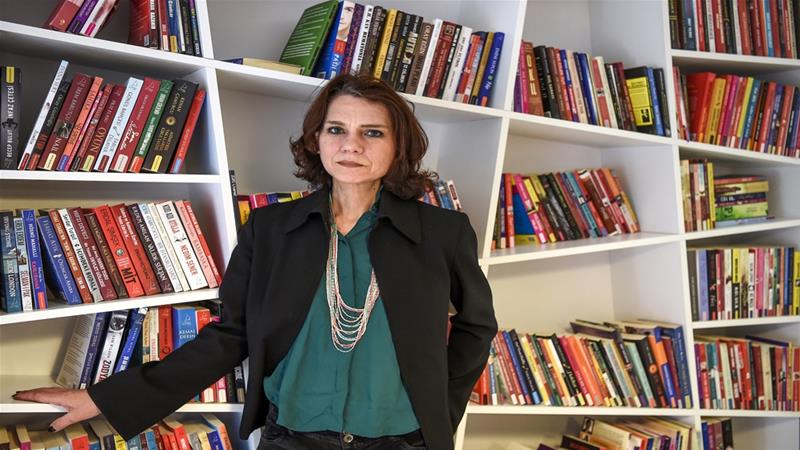
Renowned Turkish novelist Asli Erdogan acquitted in 'terror' case
Author had been arrested in 2016 as part of an investigation into alleged links to Kurdish fighters.
A court in Istanbul has acquitted renowned novelist Asli Erdogan of the charge of membership of an armed "terror organisation".
Erdogan, who is now living in self-imposed exile in Europe, was one of some two dozen staff from the pro-Kurdish Ozgur Gundem newspaper who were arrested in 2016 as part of an investigation into their alleged links to Kurdish fighters.
More:
The court on Friday also acquitted her of "undermining national unity", while the charge of spreading "terrorist propaganda" was dropped.
Two of her colleagues were acquitted of the three charges, while the cases of six others were separated. The court did not set a date for the next session of their trial.
Erdogan - who has no relation to the Turkish President Recep Tayyip Erdogan - was held in pre-trial detention for four months in 2016 but later released.
She did not attend Friday's hearing but in a statement read out by her lawyer Erdal Dogan, Erdogan said her columns did not contain any violent element.
"Their political content is limited to human rights violations," she said.
Erdogan had faced a sentence of up to nine years and four months in jail if found guilty.
At the time of her arrest, a court closed the newspaper on grounds of spreading propaganda of the armed group Kurdistan Workers' Party (PKK), deemed a "terrorist organisation" by Turkey, the United States and the European Union.
The paper was among more than 130 media outlets which Turkey closed during a state of emergency declared following a failed military coup in July 2016 in a crackdown which alarmed Ankara's Western allies and rights groups.
Ozgur Gundem had focused on the PKK conflict in Turkey's mainly Kurdish southeast and had faced many investigations, fines and the arrest of correspondents in the years before it was closed.
The PKK took up arms against the Turkish state in 1984 and more than 40,000 people have been killed in the conflict.